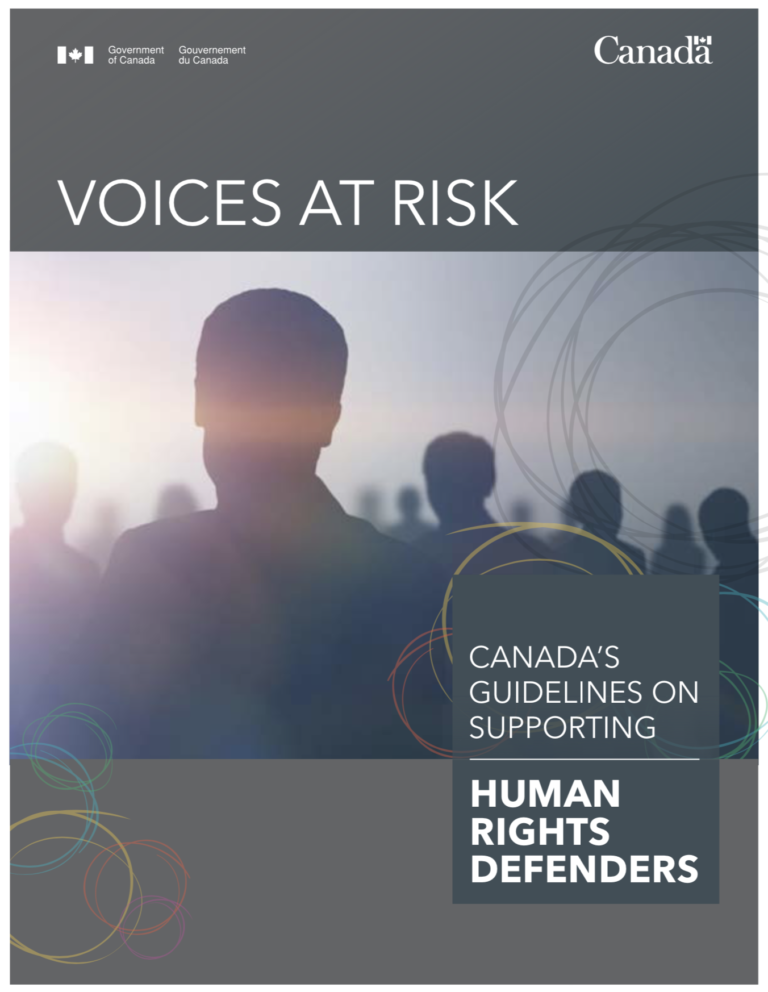Canada’s Guidelines on Supporting Human Rights Defenders (the Guidelines) is a clear statement of Canada’s commitment to supporting the vital work of human rights defenders. The Guidelines outline Canada’s approach and offer practical advicefor officials at Canadian missions abroad and atHeadquarters to promote respect for and support human rights defenders. Missions should do their utmost to implement these Guidelines, recognizing that each approach should be tailored to local contexts and circumstances, and respond to thespecific needs of individual human rights defenders.Section 4 of these Guidelines provides detailed guidance for Canada’s diplomatic missions.
The Guidelines reflect the experience gained over the years by Canadian representatives working across the globe to support human rights defenders and are informed by the work and advice of Canadian civil society organizations.
Canada’s approach to supporting human rights defenders is based on these key values:
- Human rights are universal and inalienable; indivisible; interdependent and interrelated.
- Do no harm—the safety and privacy of the human rights defenders are paramount.
- Consent—actions on specific cases should betaken with the free, full, and informed consent of the human rights defenders in question, wherever possible, or of their representatives or families, in the alternative.
The ultimate goal is to ensure that Canada continues to provide effective support to people around the world who work for human rights, by helping human rights defenders to be more effective advocates, ensuring they are able to carry out their work in a safe and enabled environment, and protecting them from harm. Human rights defenders help defend the vital and fundamental human rights that we all enjoy. We need to continue to be strong advocatesfor them.

